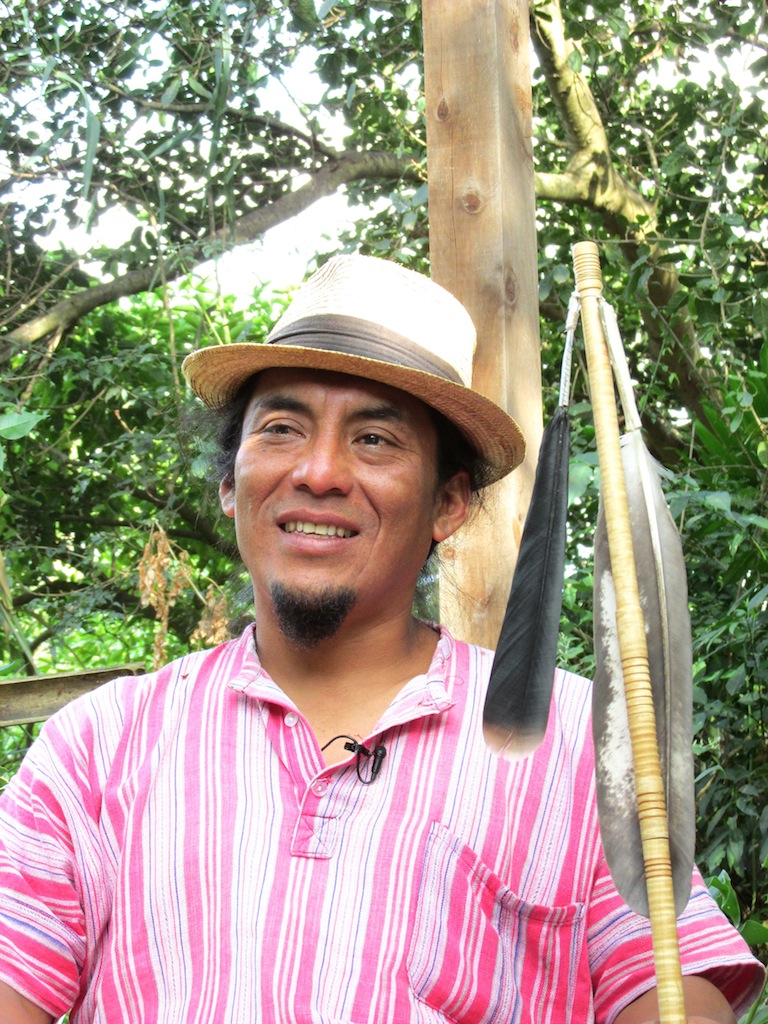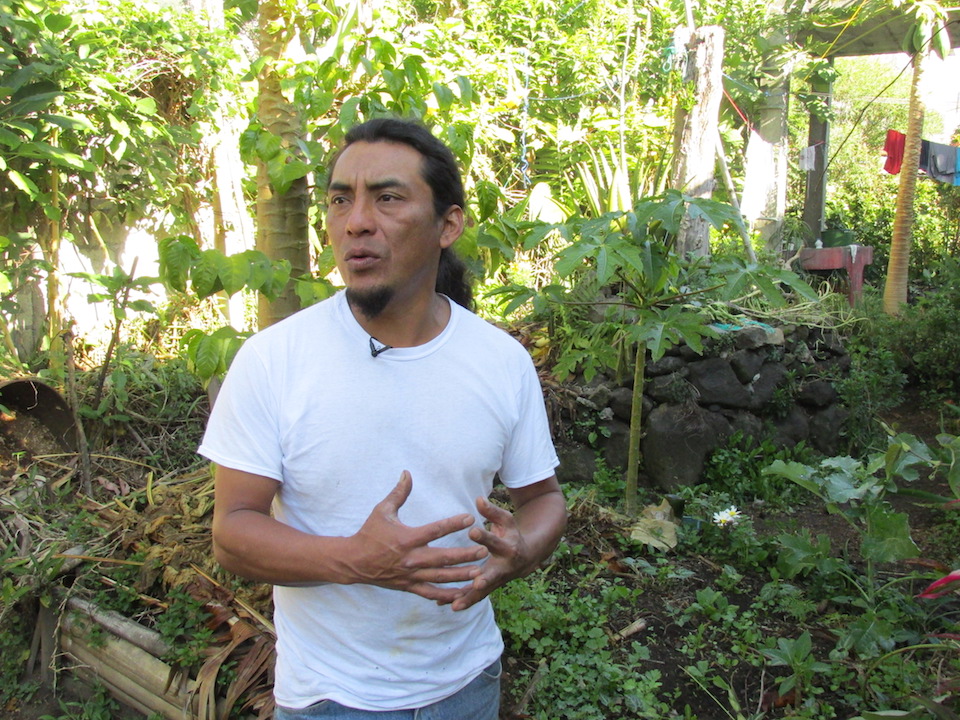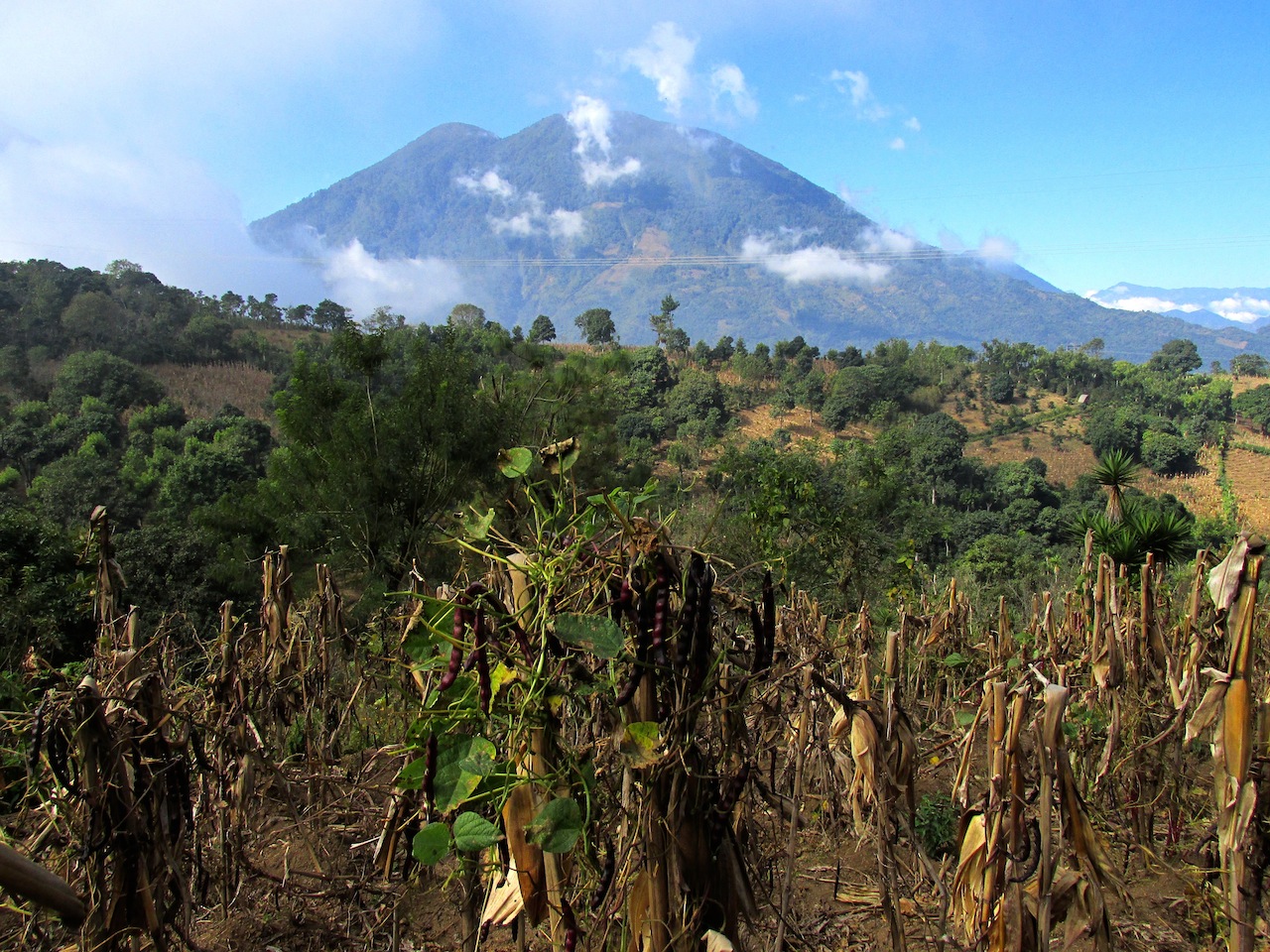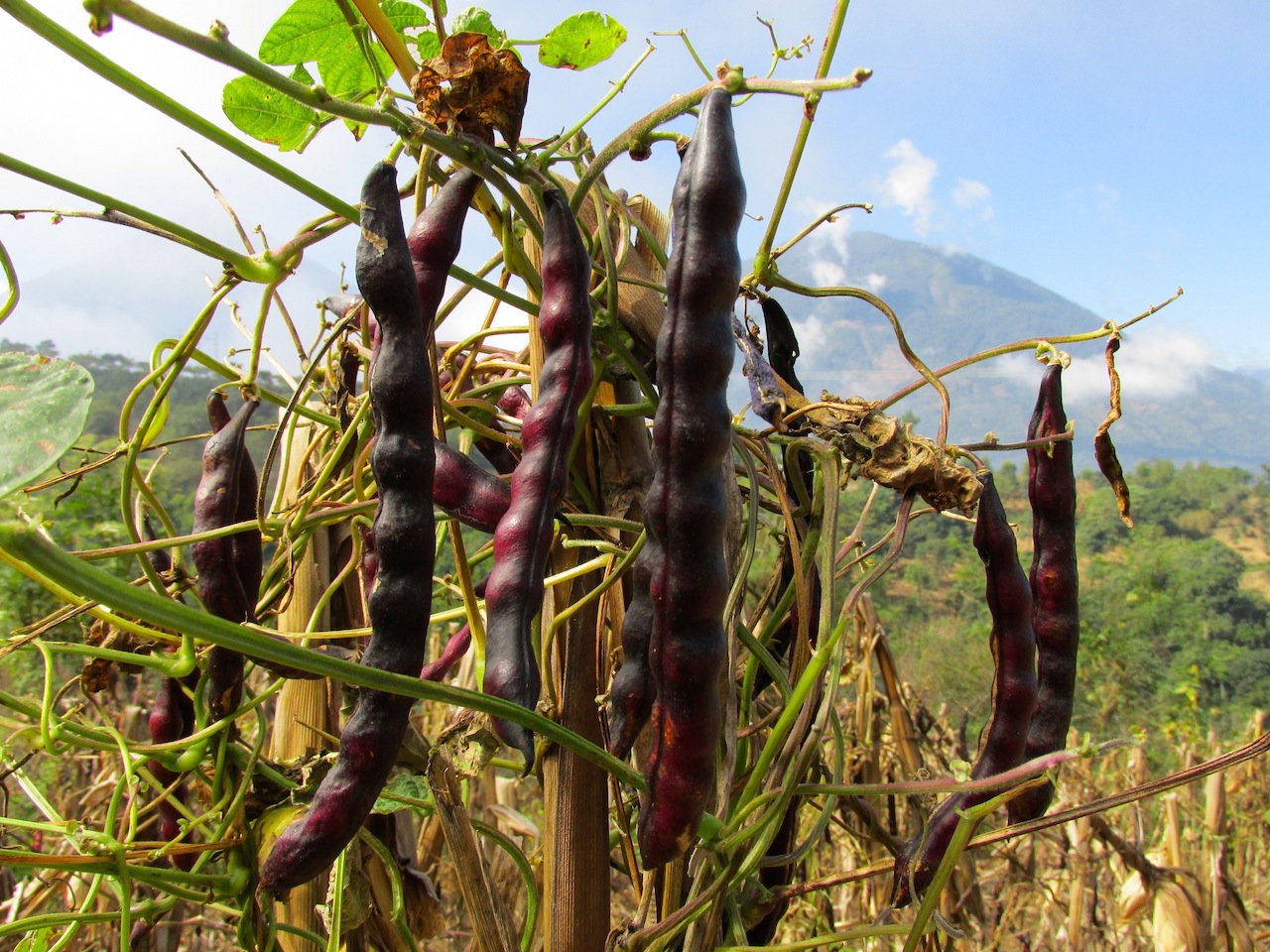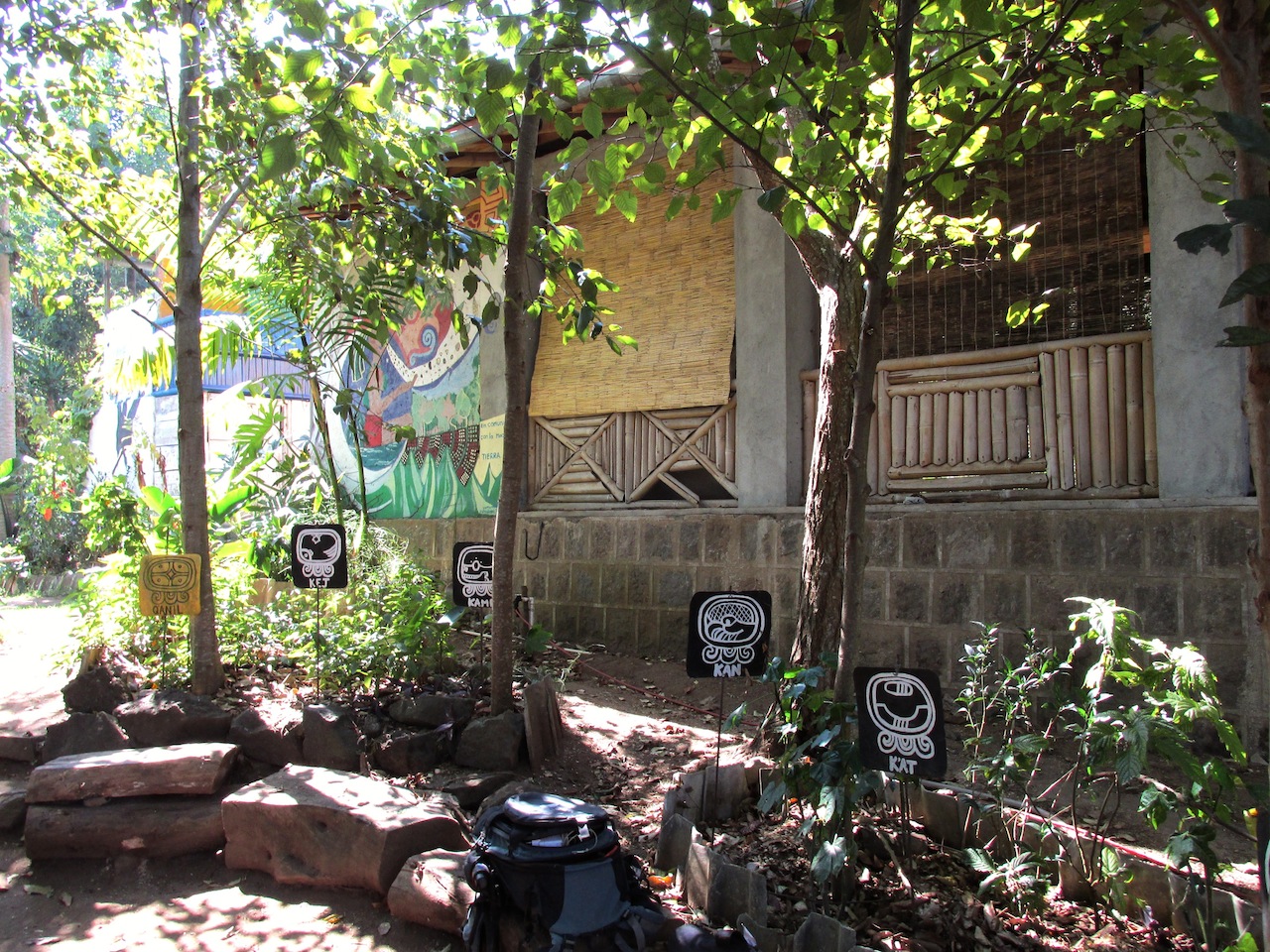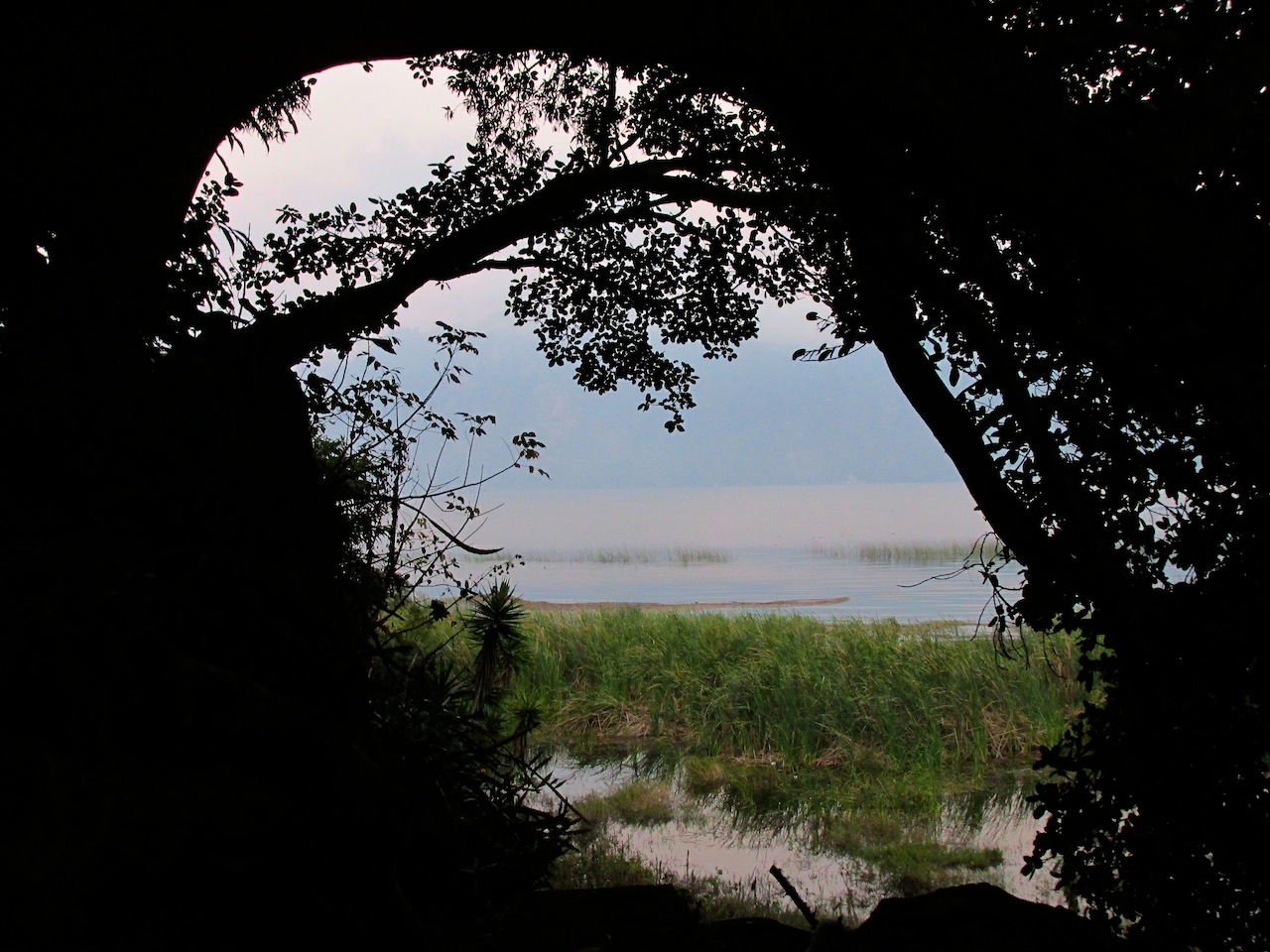Mayan Permaculturist
Ronaldo Lec Ajcot Speaks
* As with all other articles on the Tomorrow’s Ancestors Speak video pages, this article is meant only as an accompaniment to the video message containing the speakers’ main ideas.
Heading to Guatemala’s Mesoamerican Permaculture Institute (IMAP), we received the splendid experience of traversing the majestic, mysterious, and ever-so-beauteous Lake Atitlán. To reach IMAP’s home in San Lucus Tolimán by water, our senses delightfully drank in the presence of three glorious volcanoes, dancing waves, and painted skies. As we hopped from one port to another, our anticipation grew to meet a man responsible for improving the lives of so many indigenous and foreign peoples, as well as their ecological communities.
While an increasing amount of people today are awakening to ways of living in harmony with Nature, a significant portion of them fail to achieve this goal in their daily lives. Mayan permaculturist, Ronaldo Lec Ajcot, is someone whose existence is a living example of this great ideal. Soft spoken, heartfelt, and intellectual, Ronaldo Lec Ajcot is a trained anthropologist and authority in peace studies who observed a problem, found solutions, and implemented them into action within both his Mesoamerican community and the global community at large.
As we sat amidst one of the Institute’s many gardens within a circle of 20 painted symbols from the Mayan calendric system, Rony shared the reasons why he created IMAP. He began by explaining IMAP’s name and how the term Mesoamerica represents a bioregion that identifies Mayan culture and territory from southern Mexico to north of Nicaragua and Costa Rica. Permaculture gained its presence as a way of bridging ancestral knowledge that honors nature and culture with new knowledge that allows individuals to manage the changes that have occurred since ancestral time. Through its numerous educational programs, IMAP seeks to enliven the Mayan cosmovision that humans are only a part of nature. As life has only been lent to us, the cosmovision tells us that our role in life is to take care of what is around us – to take care of nature. To do this, we must learn to connect again with nature, learn how to understand nature, to be in connection with natural patterns, and to respect natural principles. Rony feels deeply that the mission the Institute embodies is not just for the local people, but for all of humanity – as the disconnection from nature is everywhere.
Having already been disconnected from the water by the Spanish invasion 500 years ago that pushed them into remote highland regions, the locals lost complete access to the lake when its shores were recently privatized with resorts and vacation houses for the wealthy. After a devastating hurricane hit the local communities and drove them into even deeper states of poverty, Rony took it upon himself to ease the suffering and create a better reality – so in the year 2000, IMAP was created. As witnessed by the improvements in water, housing, and food seen in the local Pachitulul community, as well as the abundance of visitors and residents at IMAP, much success has occurred. This is also seen in the ongoing creation of native seed banks that fight against seed erosion and carry ancestral knowledge of how to live. This success has allowed for a beautiful re-connection of the local people to the land and their much-revered water sources.
Water has always been dear to the people of Lake Atitlán, who view the volcanic Lake as the belly button of the Earth that connects them to the planet’s heart. Also called the ‘birdhouse’ by locals for being a major destination for migrating birds, many of the communities adorn much of their dresses, textiles, and art forms with these water-loving birds. There is even a community called Tzununa that is named after the hummingbird that resides amidst the waters. As part of the Mayan calendric system, every 20 days the locals pay homage to the water and what it brings them when Imox, the day of the Water spirit returns. Now, with the presence of IMAP, the locals have once again been granted access to this sacred Water and are learning ways to sustain its presence and health. This is done through both their regular ceremonies and the implementation of permaculture’s two underlying principles that seek to imitate nature by creating no waste, and honoring how everything is connected.
This interconnection can be seen in the changes in rain and weather patterns that have occurred in the region. While Rony recollects rains that lasted for weeks during his childhood, the rain now comes only in short bursts, delivering what had fallen over the course of a week in a matter of hours. As no land can hold that much water, many plants are being affected by the saturating situation. One plant in particular is the avocado, whose birthplace is Lake Atitlán, but whose roots do not like being wet. Due to the brief torrential rains, the decline in rain overall, and a warmer climate with less clouds, the avocados that are the local people’s main cash crop and food source are declining. Other organisms, however, are taking advantage of these changing conditions. Dengue has appeared for the first time in the region while numerous insects and fungi that used to be confined to low coastal regions are now affecting highland areas and fruit trees. Dealing with these issues is where permaculture’s incorporation of modern techniques into ancient knowledge occurs.
Permaculture principles are also implemented at Rony’s very-own homestead where a harmonious way of living and utilization of land creates a sustainable and edible oasis amidst urban life. His family uses only organic soaps so that all their greywater can be used to feed water-loving plants like bananas, and provide a pond for the chickens and ducks that till the land, clean it from weeds and bugs, and fertilize on a rotational basis. Rony’s family also utilizes their own waste as fertilizer through the responsible use of composting toilets. This opportunity to find a path in life that enables him to work with nature and have his hands dirty in the ground is what brings Rony the most joy. Having helped to create hundreds of gardens through his teachings, he was finally given the gift of being able to create his own garden at home. Rony’s wish for the world is that we can all do this and reconnect with the nature that is us all. This too is our wish, and we welcome you to check out IMAP’s website and discover more ways in which this can be done.


